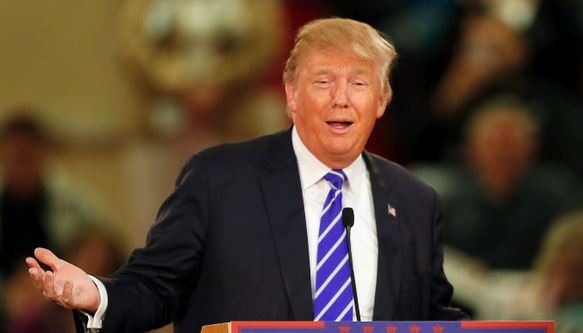I’ve said before that conservatives were showing symptoms of a negative identity—one that criticizes rather than offers a positive vision; one that says what it’s not rather than what it is.
Yesterday’s National Review issue has seemingly confirmed that diagnosis.
In a feature titled “Conservatives against Trump,” NR has amassed condemnations of Donald Trump from 21 prominent conservative thinkers around the country.
Some of the epithets applied to Trump are demonstrative of the scorn for opponents shown by, well, Trump. In the pieces he is described as a charlatan, a narcissist, an egotist, a con man, immature, insecure, racist, and vulgar. For the most part, though, the pieces are well-reasoned and well-written, and any supporter of Trump should carefully consider them.
NR seemingly intends the piece to be a dramatic examination of conscience for American Republicans, a final appeal to prevent Trump from winning the primary.
But it will probably backfire and fail.
In one sense, it illustrates conservatives’ self-critique that they are bad at messaging. The NR symposium will likely be interpreted by the public as a indicating of position of weakness; the last charge of a beleaguered army. For some reason, conservatives don’t seem to subscribe to the notion that the best defense is a good offense.
It also shows what has been another weakness of modern conservative leaders: hubris. For the past forty or so years, they’ve enjoyed success as oracles who dispense wisdom to their followers from their think tanks, endowed chairs, or radio booths. And they have undoubtedly enjoyed some success. But the think tank model is dying, the era of big ideas is over, and their faithful are mainly the 60+ crowd. Many conservative thought leaders have not clearly perceived these trends, and thus, are still under the impression that a big spread in NR can turn the tide.
Or, another alternative: perhaps NR does sense that modern conservatism is in hospice. (Trump has called it “a dying paper.”) Perhaps they’ve accepted their fate and are simply embracing their role as a prophetic voice “crying in the wilderness.” Perhaps the identity of modern conservatism has always been negative. After all, as Yuval Levin admits in one of the better pieces, “American conservatism is an inherently skeptical political outlook.”
There’s definitely room for that perspective. But in the modern era—when the public demands a positive vision for the country—it’s not electable.
















Leave a Comment
Your email address will not be published. Required fields are marked with *